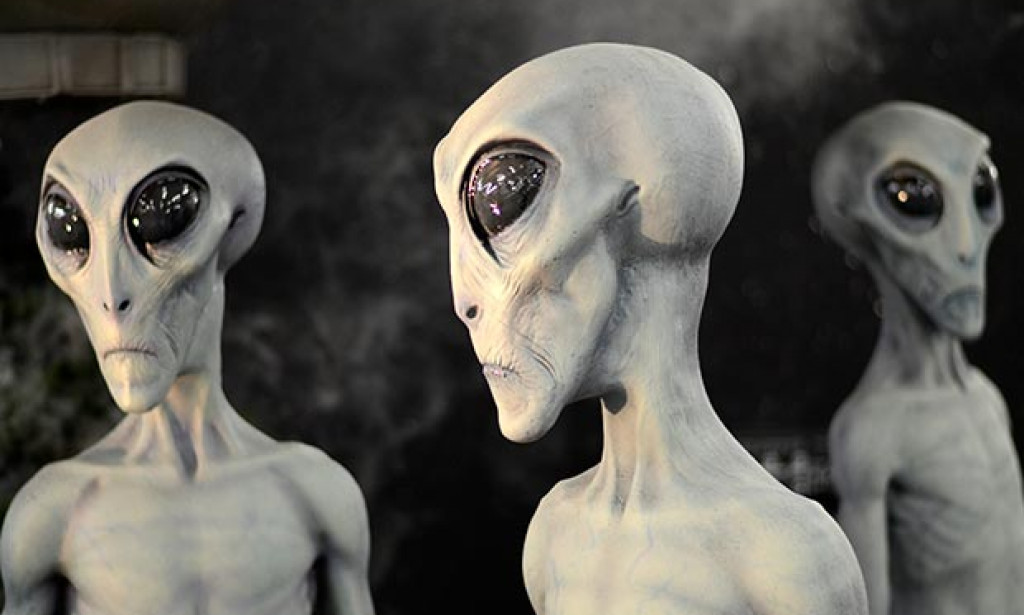
The most recent couple of hundreds of years have been very great for science. In the seventeenth century, Isaac Newton addressed the antiquated debate over the idea of powers and movement with his three regulations. In the eighteenth, Ben Franklin sorted out a ton about power. In the nineteenth, Darwin clarified the variety of species, Maxwell uncovered the material science of light, Mendeleyev characterized the groups of compound components. In the twentieth we had Einstein, who sorted out a wide range of stuff, including gravity. No to make reference to Watson and Crick, who translated the atomic establishment for hereditary qualities and life. How more treat need?
All things considered, there are still heaps of secrets left for the 21st century to tackle, and it has just 86 years left in which to settle them. So it's smart to place them in a rundown, just to keep away from any risk that everyone will neglect to deal with them.
9. How did life begin?
It doesn't seem like this one ought to be so difficult, yet it keeps on opposing arrangement. There's a lot of theory, regularly connected with RNA's capacity to act both as impetus and bio-hard drive to store data. Also new discoveries turn up constantly concerning how life's essential structure squares might have been created in early stage conditions or conveyed to Earth from space. I figure this question will wind up having something to do with game hypothesis, as biomolecules cooperate in cutthroat ways that could be portrayed as procedures, and the math for working out ideal systems is what's really going on with game hypothesis.
8. What is the personality of the dull matter?
It has been eighty years or so since stargazers started to see that there is greater gravity pulling stuff around out in space than there is apparent matter ready to deliver such results. Endeavors to recognize the as far as anyone knows outlandish (as in, obscure) types of subatomic molecule answerable for the additional gravity have been baffling. Hints found in certain analyses have been precluded by different tests. I believe there's a missing part of this riddle, however it most likely has nothing to do with game hypothesis.

7. What is the idea of the dim energy that drives grandiose speed increase?
Assuming that you think dull matter is baffling, have a go at clarifying dim energy. Something is driving space to grow at a consistently expanding rate. Physicists imagine that they know what it is - the never-changing thickness of energy living all through all of room, alluded to by Einstein as the "cosmical term" and presently called the cosmological consistent. Yet, when you ascertain how solid the cosmological steady ought to be, the response is too enormous by many significant degrees - substantially more than the contrast between the size of the whole universe contrasted and a proton. So dim energy's character stays a secret; assuming that it is the cosmological consistent, something different is genuinely amiss with what physicists think they know. Thus far game hypothesis has been positively no assistance.
6. Instructions to gauge proof
This one is secretive to the point that numerous researchers don't have a clue about there's a secret. Yet, assuming they stopped to think, they'd understand that the standard approach to surmising ends from exploratory information - working out "factual importance" - seems OK as drop-kicking on fourth and seven when you're somewhere around 15 with eight minutes to go. One little model: on the off chance that you do an investigation and obtain a genuinely huge outcome, and rehash it and come by a measurably critical outcome once more, you'd think you have preferred proof over doing the analysis just a single time. Yet, assuming the importance level was somewhat less the subsequent time, the consolidated "P esteem" would be less amazing after the subsequent investigation, despite the fact that the proof should be viewed as more grounded. It's a wreck. Game hypothesis would definitely have the option to help some way or another, potentially by uprightness of its relationship to thermodynamics.
5. Qualities, disease and karma
You could have perused as of late that most disease is brought about by misfortune, as a review distributed in Science evidently closed. (As a matter of fact, the review reasoned that the divergence in commonness of malignant growth of different sorts was generally because of karma.) A firestorm of dissent followed, basically founded on the conviction that such a review should be off-base since it would "give a false impression" to the general population. Demonstrating the illogic of that logic should be left as an activity for the peruser. Different reactions uncovered that specialists disagree on how irregular changes (misfortune) contrast and heredity (parent's shortcoming) in addition to way of life (your issue) and natural openness to awful things (another person's issue) in causing disease. Figuring all that out, and in the process settling malignant growth's different secrets, should be a high-need practice for 21st century science. What's more indeed, there is a lot of examination relating game hypothesis to disease.
4. Are there additional elements of room?
I don't have the foggiest idea why individuals continue to think this is a secret, as I have on a few events brought up that there are no additional aspects. Anyway numerous there are, they are on the whole totally important. Presented appropriately, this question ought to be what number of aspects of room are there? Many physicists accept a larger number of aspects than the common three will be required for physical science to figure out the universe. (Try not to try and inquire as to whether they're discussing bosonic or fermionic aspects.) A vital aspect for understanding this issue is the science of Calabi-Yau manifolds, which can twist up in gazillions of various ways of forestalling simple recognition of the extra aspects' presence. Also that makes it truly difficult to sort out which of the gazillion prospects would relate to the universe we occupy (except if there is some kind of fixed point hypothesis that would pick one, similar to a Nash harmony in game hypothesis). Regardless, anybody endeavoring to settle this question should initially peruse Edwin Abbott's Flatland, in which the hero character, A. Square, shows the presence of an additional an aspect and is instantly tossed behind bars.

3. The idea of time
Such countless secrets, so brief period in which to address them, except if settling this one would uncover a few astute stunts to play with time. Numerous submysteries underlie this one, relating to practically every one of the 44 meanings of time in the word reference (and that is similarly as a thing). What's the idea of term and the progression of time - is it fanciful or "genuine" in some tricky manner? What might be said about the course of time - does it go ahead all of the time? Why? Is time travel conceivable, or can messages essentially be sent in reverse on schedule? (Forward in time is simple - print this blog entry out and peruse it in twelve months.) Perhaps the greatest secret is whether this large number of issues no time like the present are connected or are totally different inquiries. Obviously, it would be generally less difficult if some way or another time could be associated with game hypothesis, which it very well may be, on the grounds that game hypothesis can be connected with cell automata, which thusly can be connected with time.
2. Quantum gravity
Quantum material science and general relativity (also known as Einstein's hypothesis of gravity) both appear to depict the universe and its parts with convincing precision, yet they appear to be completely contrary with each other. Endeavors to consolidate them into a lucid brought together hypothesis have been just about as fruitful as expediting compromise in the U.S. Congress. However there are signs. In 1930, Einstein attempted to disprove quantum mechanics (explicitly, the Heisenberg vulnerability standard) by recommending a clock appended to a container holding tight a scale could gauge both the mass of a photon and the exact time that it got away from the crate. (Heisenberg said you were unable to quantify both simultaneously). In any case, Niels Bohr brought up that the time on the clock would be dubious, in light of the fact that as the container moved vertical in the gravitational field, Einstein's relativity required an adjustment of time that would present simply how much vulnerability in the circumstance that Heisenberg required. So how, you could ask, did the vulnerability standard have any familiarity with this impact of general relativity? Perhaps assuming the specialists suggested the conversation starter that way they would have the option to sort out the quantum gravity secret. The following smartest choice is attempt the investigation of quantum game hypothesis, which hasn't been satisfactorily taken advantage of yet in such manner.

1. Does insightful life exist somewhere else?
It's enticing to erase the "somewhere else," however considering what passes for insight on Earth, it's a good idea to contemplate whether whatever like it very well may goof about on some far off world. It appears to be probable, considering the number of different universes there are out there. However, discovering without a doubt will presumably require getting a real message. Projects like SETI have been tuning in for whatever message, up to this point ineffectively. There are two (at any rate) potential clarifications: One, there have been no messages (maybe the outsiders are specialists at game hypothesis and determined that reaching people would be a terrible methodology). Two, the messages are there, however no one knows how to distinguish or remember them. Maybe improved examination is all together on Twitter, where various tweets consistently appear to be most conceivably to be crafted by outsiders.


You must be logged in to post a comment.